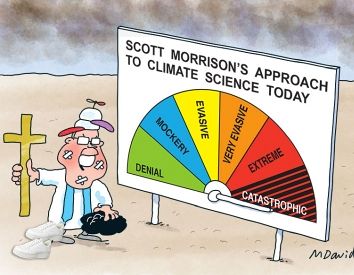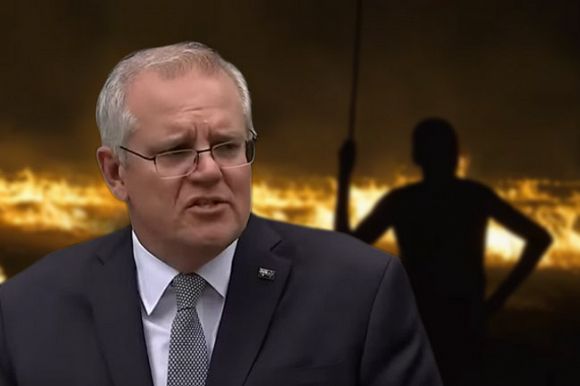Australia can expect an increase in catastrophic wildfires according to a recently released UN report entitled Spreading like wildfire: The rising threat of extraordinary landscape fires.
Wildfires are now a global issue, with predictions of exponential increases as a result of climate change, poor land-use planning and a lack of focus on mitigation strategies.
The report makes from grim reading. Over 50 experts from research institutions, government agencies and international organisations from around the globe contributed to the report.
No estimate has been made of the economic cost of wildfires by governments. A U.S. study mentioned in the UN report estimates that the annual economic burden of wildfire to be between $71.1 billion–$347.8 billion (AU$98.3 billion–$480.8 billion).
Costs to human lives exposed to wildfire smoke are growing exponentially. The Lancet journal estimates the annual mortality as a result of exposure resulted in 30,000 deaths across 43 countries.
According to the UN study, the extreme weather conditions that were potentially a leading cause of the Australian wildfires in 2019/2020 were shown to be 30 per cent more likely to have occurred because of climate change.
Scientists involved predict that by the end of the century, the probability of wildfires like the 2019/2020 fires will likely increase by 31-59 per cent in a given year.
Many wildfires cannot be put out while they burn under extreme weather conditions. The report indicates that no amount of additional equipment, resources, data, information or technology will be sufficient to extinguish or control the fire until the weather changes.
Professor Elaine Baker, one of the co-editors and co-authors told IA that:
Wildfires are uncontrollable. With the proliferation of extreme weather events such as droughts, wildfires are made worse by climate change.
At the same time, climate change is made worse by wildfires, ravaging biodiversity, carbon-rich ecosystems, causing air pollution and inhalation of toxic smoke which can cause acute and chronic health issues.
The Black Summer bushfires of 2019/2020 killed 30 people and indirectly 450 others through smoke inhalation.
The toll on biodiversity was horrific with an estimated 3 billion animals lost in the fires together with irreversible damage to ecosystems.
Professor Baker says:
‘We know that recovery can take a decade. In that time you get a completely different ecosystem. In Australia, our ecosystems have adapted to fire. But when wildfires start burning in places like the Siberian wetlands, the Arctic and the Amazon, these ecosystems are not likely to recover the same structure.’
Professor Baker told IA she’s hoping that governments will refocus from spending on fire fighting equipment to recovery of ecosystems:
Australia is very similar to the U.S. in that most of the spending goes on helicopters, firefighters, efforts to put out the fires. It’s often not a good use of resources; other integrated management approaches can be more successful.
There will be increased fire weather, we will have very high temperatures and high winds. As a community, we can look at the only thing we can control — the amount of fuel.
That’s where we need to put more effort and research into managing fuels in a sustainable way. We can’t control the weather. Fuel management is the only thing we can do.
Nobody has wildfires under control. Portugal has gone a long towards that end. After the terrible fires in 2017, the Government has developed integrated fire management, looking at data, understanding fire behaviour and risk. The statistics show they’ve been quite successful.
Control burns in Australia have been a focus of conflict dividing communities. Occasionally they break away, but Professor Baker believes they’re an important tool in fire management.
Some thorny issues have not been addressed in the U.N. report. Logging of remaining forests is an example.
IA asked Professor Baker to comment on the many studies which indicate logging of forests raises the risk of more wildfires:
‘When you log, you reduce resilience.’
Plantations are a focus of the report. Victoria and South Australia have significant numbers of eucalypt plantations, many burned incinerating thousands of animals. According to the fire experts, the increased availability of fuel and extensive continuous areas allows fire to spread rapidly and unconstrained. Accumulation of flammable fuels in monoculture plantations, plus extended droughts due to climate change, generate increasingly frequent conditions to high intensity forest fires.
The sheer extent of damage fire can cause in plantations was well demonstrated on Kangaroo Island during the 2019/2020 wildfires. Koalas and endemic island wildlife took a deadly hit.
Professor Baker says:
‘One of the things we looked at was how to find a way to evaluate the cost of wildlife and ecosystem services, as well as the mental and physical health issues. But we didn’t have enough data.
We only talk about the cost of firefighting; we need to factor in the true cost of wildfires which must include these issues.’
Auditing the full wildfire costs is a major recommendation together with investment in planning, prevention and recovery. Most nations do not have any assessment with more than half of fire expenditure spent on response.
Population growth has not been dealt with in any significant way in the report.
Professor Baker acknowledges that the national’s carrying capacity has not been a focus:
‘Unfortunately, urban projects are being built on the most productive farmland, a very short-sighted policy.
Population growth wasn’t in the scope of the report. It’s a difficult question.’
Given the L-NP’s support for a future population of 50 million in one of the most vulnerable continents to climate change, drought and wildfires, the omission is unfortunate.
However, the report covers the globe and at the forthcoming UN Environment meeting in Nairobi by all parties, there will be the potential to raise population growth with a stronger emphasis on wildfire impacts on the environment.
The International Association of Wildland Fire will hold a Fire and climate: issues and futures conference in Melbourne in June 2022 focused on better preparation and response to ‘this formidable challenge in the new decade’.
Sue Arnold is an IA columnist and freelance investigative journalist. You can follow Sue on Twitter @koalacrisis.
Related Articles
- Billionaire activism reveals the failure of Australian democracy
- UK Trade Agreement a climate disaster
- Scott Morrison's 'let them eat coal' Party
- Protests distract Government from climate crisis
 This work is licensed under a Creative Commons Attribution-NonCommercial-NoDerivs 3.0 Australia License
This work is licensed under a Creative Commons Attribution-NonCommercial-NoDerivs 3.0 Australia License
Support independent journalism Subscribe to IA.
















